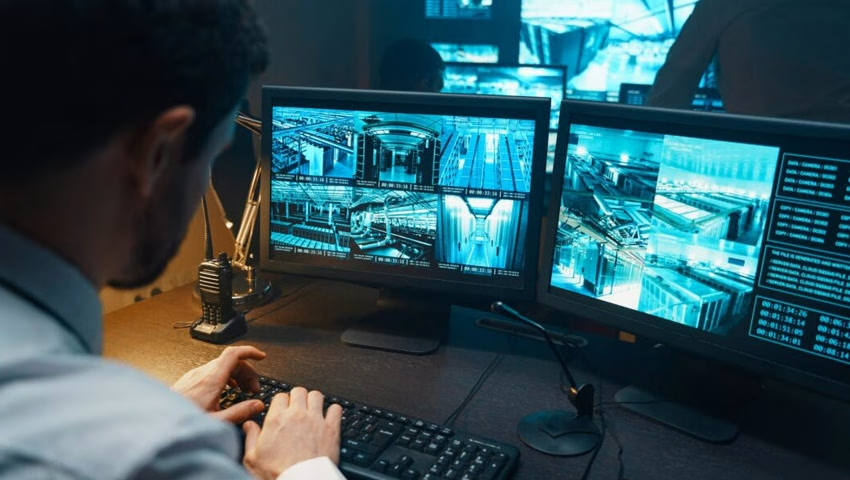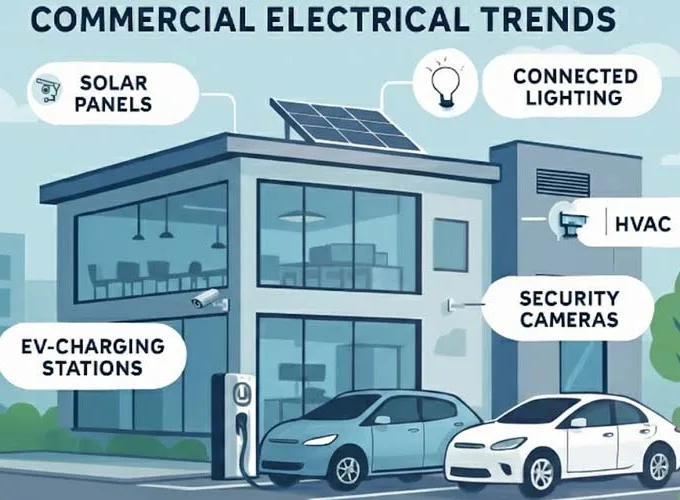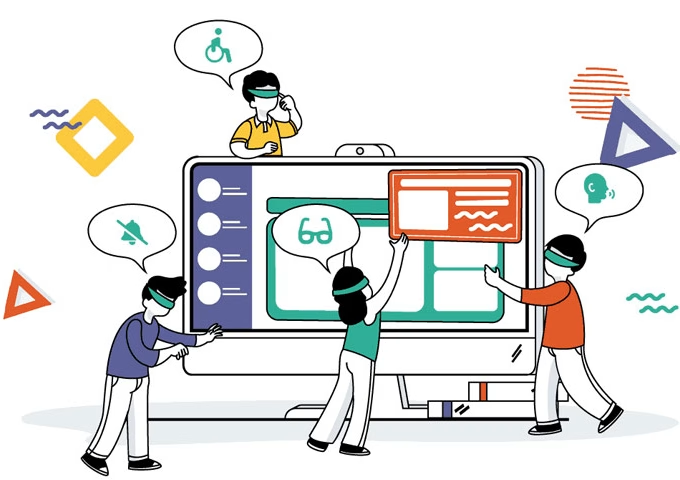Security isn’t just about locks on doors anymore. Businesses face a range of threats, from theft and vandalism to cyber risks and internal security breaches. Now imagine if your shop is equipped with an alarm and monitoring system. As soon as someone tries to do something wrong, the alarm will go off, the cameras will record their defeat, and you or the police can take immediate action.
It is no longer limited to big business. Nowadays, from small shops to large companies, everyone is using alarm and monitoring systems to protect their business.
In this article, we’ll learn how these systems work, and what might be the best choice for you. Let’s find out how you can protect your business!
The Role of Alarm and Monitoring Systems in Business Security
Solid alarm and monitoring systems Adelaide do two things: they deter criminals and alert the right people when something goes wrong. Traditional alarms are still useful, but today’s technology has taken things to a whole new level.
- Instant Alerts – The moment an issue is detected, modern systems send alerts to business owners, managers, or security companies, ensuring a quick response.
- Remote Monitoring – Live camera feeds and mobile notifications mean you can check in on your business from anywhere.
- Integrated Access Control – Security systems now work with keyless entry and access logs, helping businesses track who enters and leaves the premises.
- Smart Automation – Some systems link with lighting, climate control, and even door locks to provide a fully automated security setup.
- Emergency Response – Many systems are directly connected to emergency services, triggering automatic calls for assistance in case of break-ins or fire.
This level of control means businesses aren’t just reacting to problems; they’re preventing them before they even happen.
Types of Alarm and Monitoring Systems Businesses Can Use
Choosing the right security system depends on your business type, location, and the level of protection you need. Here are the main options:
1. Burglar Alarms
Still a core part of any security setup, these alarms detect unauthorised access and trigger loud sirens—or silent alerts to security services. They’re often paired with motion detectors, glass break sensors, and door sensors to ensure full coverage.
2. CCTV and Live Monitoring
Surveillance cameras have come a long way. Many now offer HD recording, night vision, and remote access through apps. Businesses can either self-monitor or use professional monitoring services that keep an eye on things 24/7.
3. Access Control Systems
For businesses with multiple employees, access control systems regulate who can enter specific areas. Keycards, biometric scanners, and PIN codes ensure only authorised individuals can get in.
4. Smart Security Hubs
These all-in-one systems connect alarms, cameras, and sensors to a central platform, making security management much easier.
5. Fire and Environmental Monitoring
Security isn’t just about preventing theft. Many systems include smoke, carbon monoxide, and flood detection, protecting businesses from environmental risks.
Key Benefits of Investing in a Business Security System
A security system isn’t just an expense—it’s an investment in peace of mind, safety, and efficiency. Here’s why every business should consider one:
- Deters Crime – Just having visible cameras and alarm systems reduces the risk of burglary and vandalism.
- Protects Assets and Data – Businesses store valuable stock, equipment, and sensitive information that needs safeguarding.
- Enhances Employee Safety – A monitored security system creates a safer working environment for employees.
- Reduces Insurance Costs – Many insurance providers offer lower premiums for businesses with robust security systems in place.
- Provides Legal Protection – If a dispute or incident occurs, recorded security footage can serve as critical evidence.
With these benefits, it’s easy to see why modern security is essential for business success.
Features to Look for in a Business Security System
Not all security systems are created equal. When choosing one, look for these must-have features to ensure full protection:
- 24/7 Monitoring – Whether self-monitored or professionally handled, round-the-clock coverage is key.
- Mobile Access – The ability to check live feeds and receive alerts from anywhere is a game-changer.
- High-Quality Video – HD or 4K cameras with night vision ensure clear footage, day or night.
- Customisable Alerts – Choose how and when you get notified—whether by text, app, or email.
- Scalability – A good system should grow with your business, allowing easy expansion.
- Backup Power & Cloud Storage – Ensures your system keeps running even during power cuts, and footage isn’t lost.
Investing in the right features ensures your security system works efficiently without unnecessary gaps.
How Much Does it Cost to Install Alarm and Monitoring Systems to Keep Your Business Safe?
The cost of installing alarm and monitoring systems to secure your business varies based on several factors, including the size of your facility, the complexity of the system, and specific security needs. Here’s a breakdown of the typical expenses.
1. Security Hardware
- For small businesses, a basic security setup—including door and window sensors, motion detectors, and a control panel—typically costs between $500 and $1,500.
- More comprehensive setups with features like video surveillance, access control, and environmental monitoring can range from $2,000 to $5,000 or more.
2. Installation and Activation
- Professional installation ensures that all components function correctly. These fees generally range from $300 to $1,200, depending on system complexity and facility size.
- Some providers may charge a one-time activation fee, which varies based on the chosen security solution.
3. Monitoring Services
- Professional monitoring services, which provide 24/7 surveillance and rapid response to alarms, typically cost between $40 and $120 per month.
4. Surveillance Systems
- The average cost to install a surveillance system ranges from $2,320 to $3,910, depending on the number and type of cameras, as well as other equipment like monitors and recording devices.
5. Integrated Security Solutions
- Integrating video surveillance, access control, environmental monitoring, and alarms into a single platform can increase costs due to software and installation complexities. Such integrated systems can range from $10,000 to $100,000 or more, especially for larger facilities or multi-site operations.
The Future of Business Security: What’s Next?
Security technology is evolving fast, and businesses will soon have even more powerful tools at their disposal. AI-driven analytics, facial recognition, and predictive security technology are already making their way into modern systems. These advancements mean businesses will be able to identify potential threats before they happen, improving response times and reducing risks even further.
As more businesses move towards smart security, integration with other workplace technologies will also become the norm. Expect to see security systems linking with payroll, time tracking, and even customer service analytics to create a seamless, data-driven business environment.
Frequently Asked Questions
1. How do Alarm and Monitoring Systems Improve Business Security?
These systems deter crime, detect unauthorized access, and alert authorities in real time, reducing the risk of theft and vandalism.
2. What Types of Businesses Benefit From Alarm and Monitoring Systems?
Retail stores, offices, warehouses, restaurants, and any business handling valuable assets or sensitive information benefit from these security measures.
3. Can Alarm Systems Work Without a Monitoring Service?
Yes, but a monitored system provides immediate response from security teams or law enforcement, offering better protection than a standalone alarm.
4. What Features Should a Business Look for in a Security System?
Key features include motion detectors, surveillance cameras, remote access, real-time alerts, and 24/7 monitoring for comprehensive protection.
5. How do Security Cameras Enhance Business Safety?
Cameras deter criminal activity, provide evidence for investigations, and allow remote monitoring of business operations in real time.
6. Are Wireless Security Systems Better than Wired Ones?
Wireless systems offer easy installation and remote access, while wired systems provide stable connectivity and reliability. The choice depends on business needs.
7. How do Alarm and Monitoring Systems Reduce Business Liability?
They document security incidents, helping businesses prove due diligence in preventing theft, fraud, and workplace safety violations.
8. Can I Monitor My Business Security System Remotely?
Yes, many modern systems allow remote access via mobile apps, letting business owners monitor security from anywhere.
9. Do Security Systems Help with Employee Safety?
Yes, they protect employees from potential threats, ensure emergency response readiness, and create a safer work environment.
10. How Often Should a Business Security System be Updated?
Regular updates ensure optimal performance. Businesses should upgrade their systems every few years or when new security threats emerge.
Wrapping Up
Investing in an alarm and monitoring system isn’t just about preventing crime—it’s about building a safer, smarter, and more efficient business. The right system provides peace of mind, allowing business owners to focus on growth without worrying about security threats. Whether upgrading an existing setup or installing one from scratch, the benefits far outweigh the costs. Don’t leave security to chance—protect your business today and stay ahead of potential risks.













